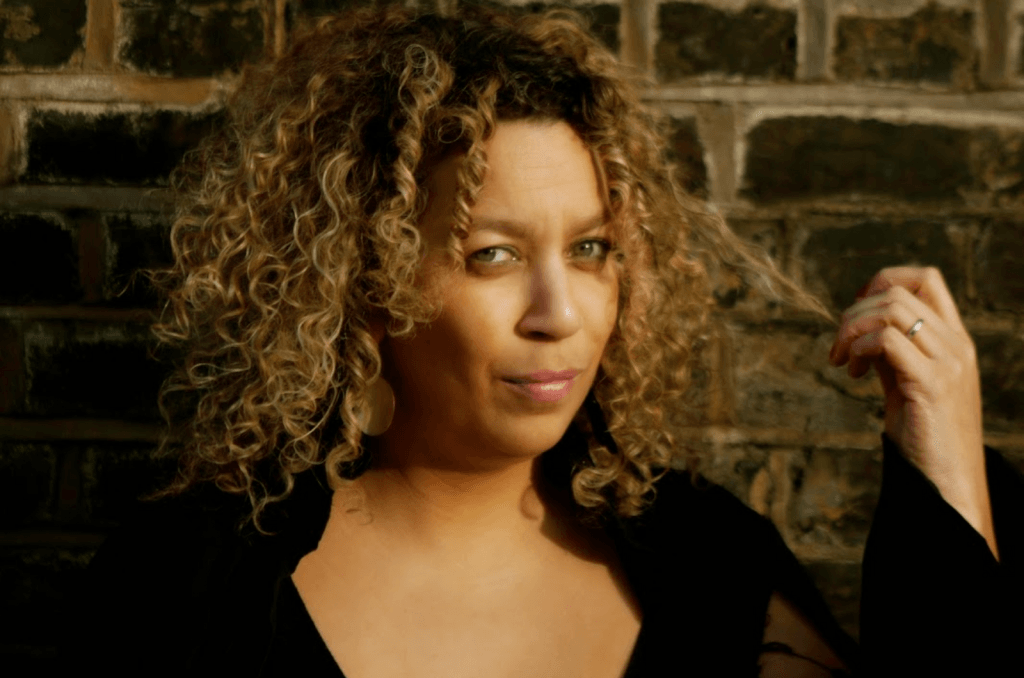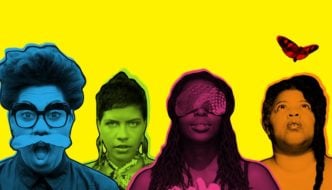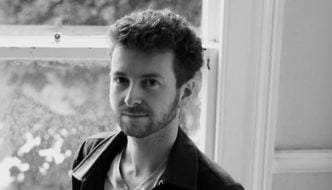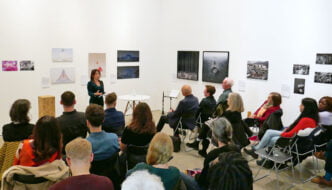
Credit: Olivia Rutheford
It was the weekend when everything really seemed to hit home. I’m not sure how or why, but there seemed to be a collective readjustment throughout the UK at almost exactly the same time. I don’t buy into any superstitions, but I know without having to check that it was Friday 13 March. Social plans were scrapped at the last minute, the streets were drained of bodies and for many of us, a visceral and tangible fear started to set in.
We didn’t immediately self-isolate: my partner Maria and I. There was a definite shift over the weekend, but it wasn’t until the Monday that we voluntarily went into lockdown. On the Saturday, we were in Soho to record Episode 4 of Roaring 20s Radio with my co-presenter Amah-Rose Abrams. A musician known as LAIMA was our studio guest alongside Maria, and our third presenter Salena Godden was too ill to come in.
There was a tentative and reserved feel to the show. We didn’t want to embrace the foolish Blitz spirit that’d been instilled in so many people by Boris Johnson. But we also didn’t want it to feel all doom and gloom and defeatist. We were revelling in the fact that we had this podcast to immerse ourselves in: the music and the poetry and the conversations about art and activism that were both a source of escapism and a form of response.
Anyway, because Salena was too ill to come in, she recorded her usual segment of book recommendations from home and sent us the audio file. She also recorded a brand-new poem, written in direct response to the pandemic, called ‘And the Moon Don’t Talk to Me Anymore’. Whenever Salena sends you a new poem, you know that it’ll be remarkable in some way and you know that it’ll open a new door in your brain that you never knew had existed. But even by those standards, I wasn’t prepared for what this poem was bringing to the table.
Salena sent us the audio files a few hours before we went on air, but we live quite far out east and so I’d not had time to listen before we set off for Soho. This meant that I was hearing the poem for the first time as it was broadcast live on Soho Radio, with around 15 minutes of our show left. And I’m sat there in the studio, with Maria and Amah-Rose and LAIMA, and we were all simultaneously knocked for six. The poem had been set to ‘The Workers of Art’ by The Cinematic Orchestra and it was unlike anything I’d heard before. It was so timeless and so unapologetically now. It had an ethereal feel to it whilst landing a sucker-punch at precisely the same time.
And when the world was caving in around us. When the streets of Soho were scattered at best and nobody had a clue what’d happen from one day to the next. When the schools and the pubs were about to be closed and the death count was continuing to rise. At that precise moment, I heard Salena’s poem, and I felt an overwhelming sense of comfort that I hadn’t realised I needed. It just completely swallowed the landscape, grabbed me by the wrist and told me it’d be alright.
Now, I realise that sounds melodramatic. And that a poem can’t help people who’ve been plunged into poverty or who are social distancing alone or who are suffering with symptoms of COVID-19. Or who’ve lost a loved one, or are being forced to work without PPE, or who’ve lost a business. I’m not saying that. But I do believe that a poem can be there for you when you most need it. And that it can have a much more powerful impact on you than any other art-form. The fact that Salena had written it so quickly gave it even more weight. The Rolling Stones have just released a single called ‘Living in a Ghost Town’, but the jammy old codgers recorded it last year and just happened to stumble into an unprecedented global lockdown.
I’d also like to give a shout out to Erin Bolens. She wrote a triptych of poems and posted them on Twitter and Instagram on 27 March, and again they absolutely blew me away. Poetry’s ability to be so instant and so topical and so relevant is a double-edged sword. In fact, if it were possible, it’d more likely be a triple-edged sword. As a poet, you’re automatically under pressure to add your commentary into the mix. Also, a lot of poets think that something being bang up to date means that it’s good, when in reality it’s far from it (sorry, I’m only being honest).
Three new little poems that I hope won't be relevant for long so I'm popping them up in here in case anyone feels the same. Go easy on yourselves ey? pic.twitter.com/qTpJVMFNcW
— Erin Bolens (@erinbolens) March 27, 2020
However, Erin’s poems are a prime example of how they can freeze time, Bernard’s Watch style, and capture the moment far better than any news story or *checks notes* meme. I think they’re absolutely incredible, and when people are reading about this time in decades to come, as they undoubtedly will be, I hope that Erin’s poems and Salena’s poem are where they belong at the top of the pile.
So, in light of what Salena and Erin have done, I’m declaring poetry as lockdown’s official language. Most people have been given an unimaginable wealth of spare time, and every time we leave our homes it’s quite literally a matter of life or death. So, if you’re not keen on the idea of baking or living room yoga or whatever else it is that people are doing, do yourself a favour and read some poetry.
If you want a head-start, Out-Spoken Press are making a load of their books available for free in PDF form. They’re one of the UK’s best indie poetry publishers, so you really don’t have any excuse. Also, if you don’t fancy reading, all of Nymphs & Thugs’ releases are on Spotify. You never know – you might surprise yourself!
Matt Abbott is a poet, educator and activist from Wakefield. His debut poetry collection Two Little Ducks was published by Verve in 2018 and his debut kids’ poetry collection A Hurricane in my Head was published by Bloomsbury in 2019. He formed spoken word record label Nymphs & Thugs in 2015 and also fronts indie band Skint & Demoralised.
Filed under: Written & Spoken Word
Tagged with: covid19, isolation, language, lockdown, Nymphs and Thugs, poem, poetry, spoken word, writing



Comments